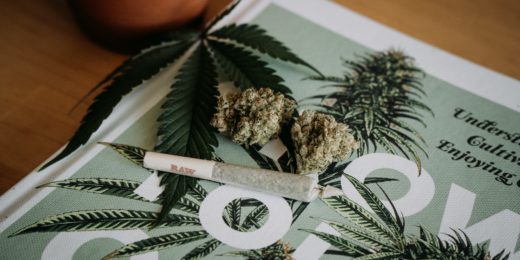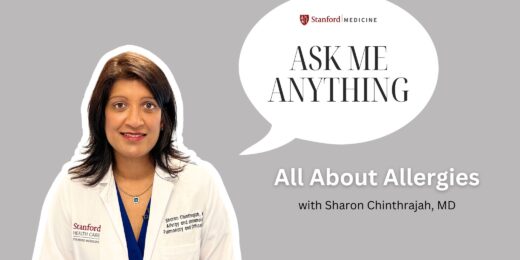As a longtime psychiatric clinician specializing in substance use disorders and addiction, Stanford Medicine's Smita Das, MD, PhD, has had a front-row seat to the aftershocks of America's cultural about-face on cannabis.
She has watched the unintended consequences of marijuana use, ranging from dependency issues to psychosis, sneak up on people. The surprise likely stems from the fact that it's a substance now recreationally legal in 23 states, medicinally legal in 38 states -- and one largely presumed to be neither harmful nor addictive, even if it's still considered an illicit drug by the federal government.
How could a popular, naturally grown substance now easily procured in modern-day strip mall settings by an estimated 48 million Americans be derailing lives? Hadn't Reefer Madness -- the hysteria-inducing 1936 propaganda movie -- proven to be a joke?
"It was just a joint, just cannabis ... it wasn't supposed to be addictive," Das said of the rationales she hears from patients. "But the unfortunate fact is, it can be really devastating."
According to the Centers for Disease Control and Prevention, three in 10 people who use marijuana daily have a cannabis use disorder, defined by the CDC as the inability to stop using cannabis even though it's causing them health and social problems.
A correlation between marijuana use and serious mental health conditions has also grown stronger, with the CDC reporting that long-term or frequent use increases the risk of psychosis or schizophrenia. Danish researchers recently published a study in JAMA Psychiatry showing that people previously diagnosed with the disorder were almost twice as likely to be diagnosed later with clinical depression and were up to four times as likely to be diagnosed later with bipolar 1, which includes psychotic symptoms.
As the chair of the American Psychiatric Association's Council on Addiction Psychiatry, Das is among a growing number of doctors thrusting a cautionary flag into the smoky skies of the legalization frenzy.
They are seeing evidence that today's much-stronger strains of weed, which are more accessible than ever, can have harsh effects on the unsuspecting brain -- particularly young ones with yet-to-be-formed prefrontal cortexes (responsible for decision -making and planning) and those susceptible to addiction and serious mental disorders.
Das has helped pen position statements in opposition to cannabis as medicine, on the impact of cannabis on children and adolescents, on the need to monitor and assess the public health and safety consequences of legalizing cannabis, and against the use of cannabis for PTSD.
As a clinician and policy advocate, she says she's simply following the data. In 2021, 16.3 million Americans -- 5.8% of people 12 or older -- had experienced a marijuana use disorder within the past year, according to a survey published in January by the federal Department of Health and Human Services.
And it tracks with her firsthand accounts as a clinician, which tell her that many people don't realize they have a cannabis problem because they didn't believe such a condition exists: "When it comes to cannabis, the risk perception is low," she says.
While Americans are well -versed on a persisting opioid epidemic, they are far less likely to know about the growing body of medical science that suggests marijuana use can be both addictive and harmful to the brain.
As part of her awareness mission, Das has shed light on the key issues of concern.
Why is it important to talk about marijuana addiction?
When I was working in a residential treatment center, people were there for alcohol use disorder, opioid use disorder, methamphetamine use disorder. One patient stood up and said he was there for cannabis use disorder. Some other members of the program started to chuckle. But it had ruined his life. He had lost motivation, lost his job, lost his family, lost all his finances. We're hearing about these situations where people are really being negatively impacted by very high-potency cannabis. After the pandemic hit, numerous studies demonstrated increased use. Someone who might have used for an hour a day was now reporting use in excess of six hours a day. That was common during the pandemic.
How has availability and potency factored in?
In the previous century, top-grade cannabis might have been 20% tetrahydrocannabinol, or THC, the psychoactive compound in cannabis. Now there are THC concentrates in excess of 80%. This really impacts how much that substance affects the brain in the moment and the long-term addictive potential. When a substance creates a larger effect in the brain that might be perceived as pleasurable, there is usually an impetus to use more of it. And when we think about addiction and what makes a substance more addictive, we have to consider how often it's used. That's where legalization has changed things -- it's now far more accessible. This is the addictive cycle.
The American Psychiatric Association has pushed back on cannabis as medicine. Why?
There's insufficient evidence to support cannabis use for not just mental health and psychiatry, but all specialties. Currently, cannabis can be recommended for a very narrow list. For instance, in oncology, there are two synthetic medications related to cannabis that are approved by the Food and Drug Administration for nausea or vomiting associated with chemotherapy. On the other hand, for things like anxiety, there's data that cannabis may worsen the anxiety in the long term. We have increasing evidence that some of the psychotic disorders, for example schizophrenia, are impacted by early high-potency cannabis use. There are a number of studies showing that when younger people use the stronger THC concentrates, they are at high risk of developing psychotic symptoms at a younger age.
What do you tell your patients?
It's important to be non-judgmental and determine if they are experiencing negative impacts from cannabis, such as spending a lot of time getting cannabis or being less motivated and missing out on work or school obligations because of cannabis use. Are they having arguments in their social or family circles because of cannabis use? I like to empower my patients with those criteria so that they know, even if they're not interested in changing their cannabis use habits, how to evaluate their use. I often share resources with them so that they can learn from reputable sources.
What knowledge should young people eager to try cannabis be armed with?
The young brain is very vulnerable -- especially from adolescence up to age 25. There's a lot of growth happening in the brain that cannabis can negatively impact. I try to break the misconception that cannabis is not addictive. I remind them that their brain is still growing, that they still have so much potential and that I'm excited for what they're going to do with their future. I tell them that I'm there to support them in any way I can so we can prime their brain to reach its fullest potential. But it's hard because the risk perception of cannabis is low and there are studies that show how that makes it more likely people will try it. Mitigating the risks of cannabis and spreading awareness of its dangers will take time, especially as legalization and access expand and potency increases.
For more information on cannabis use disorder, Das recommends this toolbox from the APA and this report by the National Academy of Sciences.
Photo by Africa Studio






